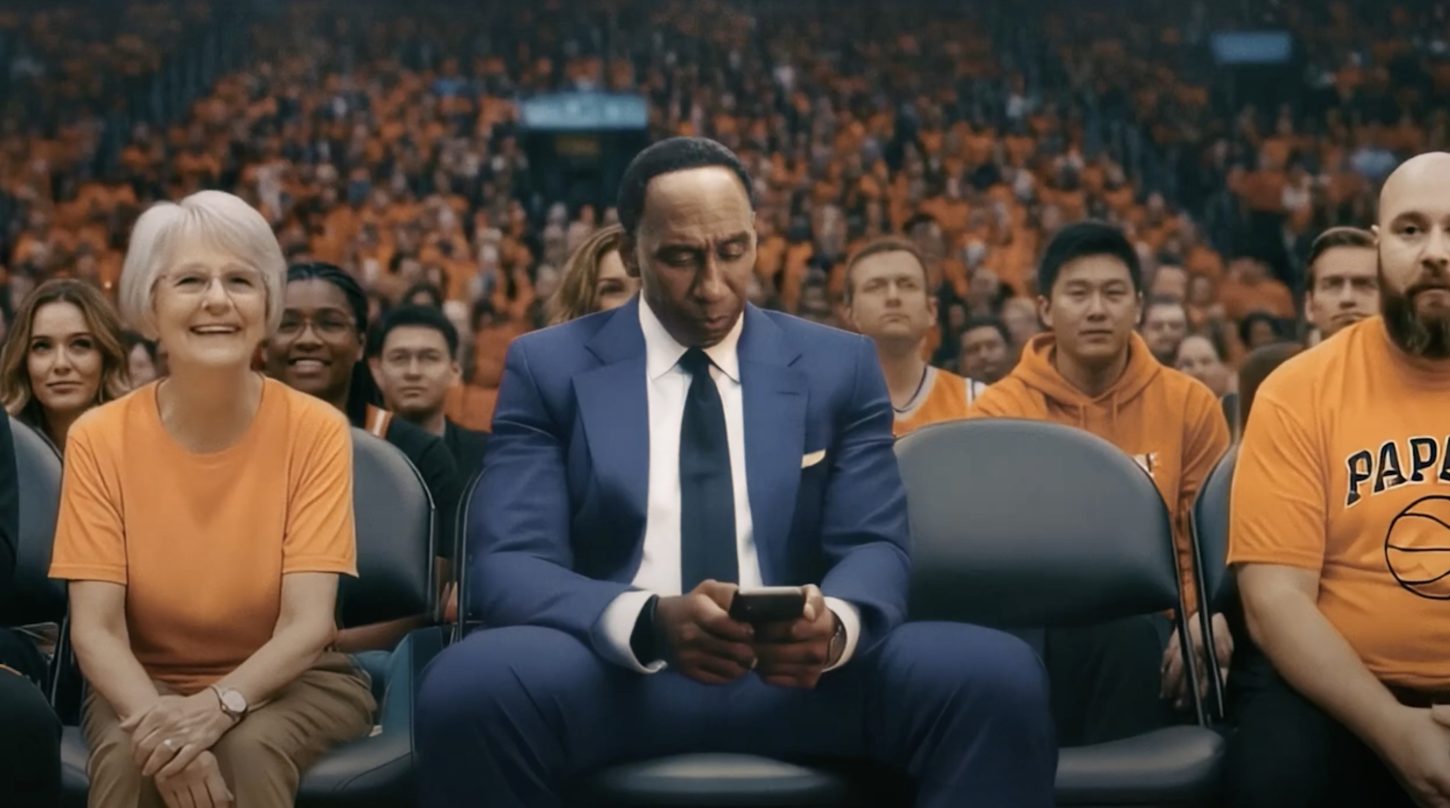Earlier this summer, ESPN made the confounding and ultimately disastrous choice to build its NBA Finals broadcasts around the stentorian yowling of Stephen A. Smith, a man who neither knows ball nor cares for it. You could have deduced that from watching him work the desk or, even more starkly, plug away at a solitaire app on his phone during the best game of the series. One might consider Smith's omnipresence on ESPN's broadcast alongside his naked disinterest in the thing being broadcast, and wonder whether this was as cynical as he could get.
No. It could get worse, as shown by this grotesque new AI ad Smith cut for Solitaire Cash, a solitaire-branded app that belongs as a notable new entry in mobile game hell:
Papaya Gaming, the company behind Solitaire Cash, clearly has enough money to buy the last remaining scraps of Smith's dignity as well as rounding up several of his ESPN colleagues. On Wednesday, Mina Kimes, Dan Orlovsky, Laura Rutledge, and Kendrick Perkins all used their Twitter accounts to post ads for the app, upon which people can lose money playing solitaire. Papaya is doing this to promote this month's upcoming solitaire "world championships" in Miami; the company says it will fly 400 people out to compete for some $300,000 in prizes. Papaya announced this all in another equally repulsive AI ad.
That ESPN personalities would be tied up in something like this is not altogether surprising. Big-time sports media is saturated with gambling partnerships; virtually every media company and most individual personalities are taking money from someone. The Worldwide Leader's partnership with Penn Entertainment was a hilarious flop, though that hasn't slowed ESPN's eager rush to continue degrading its product with more and more gambling sludge. ESPN Bet will be as prominent as before, but now a funnel to DraftKings instead of Penn. Speaking of DraftKings, one of the sports betting company's many ventures is a "multi-stage venture capital firm" called Drive by DraftKings, which invests in a number of gambling, media, and sports-adjacent companies, one of which is Papaya.
Papaya's signature offering is a gambling product in all but the strictest technical sense. Solitaire Cash is a so-called "skill game," which skirts definitions about what is and is not considered gambling in order to evade regulatory scrutiny. If players are competing against each other instead of algorithmically determined odds, or if the games on offer involve skill instead of chance, then they aren't subject to the same level of regulation. The definition of skill is so expansive as to include slot machines, so you can think of Solitaire Cash as a lightly reskinned mobile casino.
Papaya was founded by Oriel Bachar, who, per his LinkedIn, worked at a bunch of Israeli tech companies and served as a drone operator in the IDF from 2008 to 2010. His company is chiefly notable for partnering with Israeli athletes who went to the Paris Olympics, launching an initiative to support Israelis living near the Gaza Strip by means of a gamified challenge, and being sued by Skillz, a rival platform. That lawsuit will soon go to trial, as U.S. District Court Judge Denise Cote issued an opinion on Oct. 27 against Papaya's request for summary judgment. The company initially claimed that all games on its platform were between human players, and not bots, as the latter would violate the core claim that Papaya facilitates games of skill. In Cote's opinion, she wrote that because of pervasive reliance on bots, "Papaya may have then been classified as a gambling platform."
Not only that, but Papaya allegedly tried to cover it up:
Papaya’s advertising led customers to make pointed inquiries about Papaya using bots and to fling angry accusations at Papaya. Papaya did not respond to the inquiries and accusations by acknowledging bot usage, but by denial. For example, executives decided to respond to a customer who asked for a direct answer on whether Papaya used bots by informing the user that the platform has "real players" and placing the blame on "rare cases where players use automated systems." Recognizing that customers noticing bots on the platform was a growing issue and impacted "trust in our fairness," Papaya executives modified its bots’ performance to make bot profiles appear more human so that fewer users would detect their usage going forward.
ESPN talent partnering with such a scummy company is disgraceful, vampiric stuff. Unfortunately, it's no longer all that surprising.






